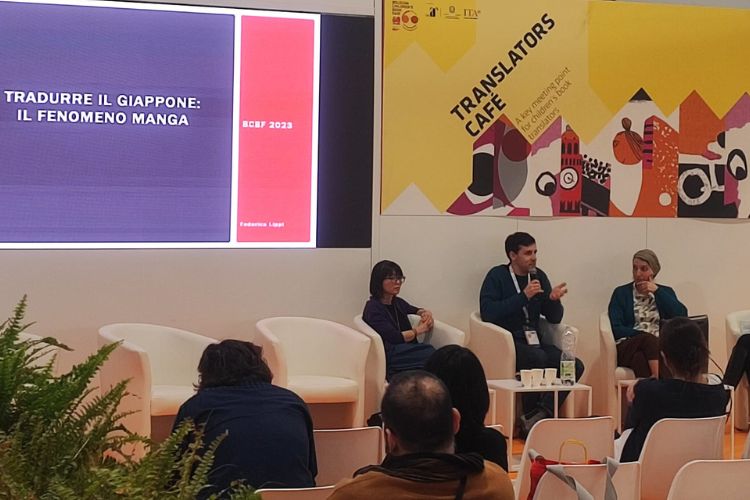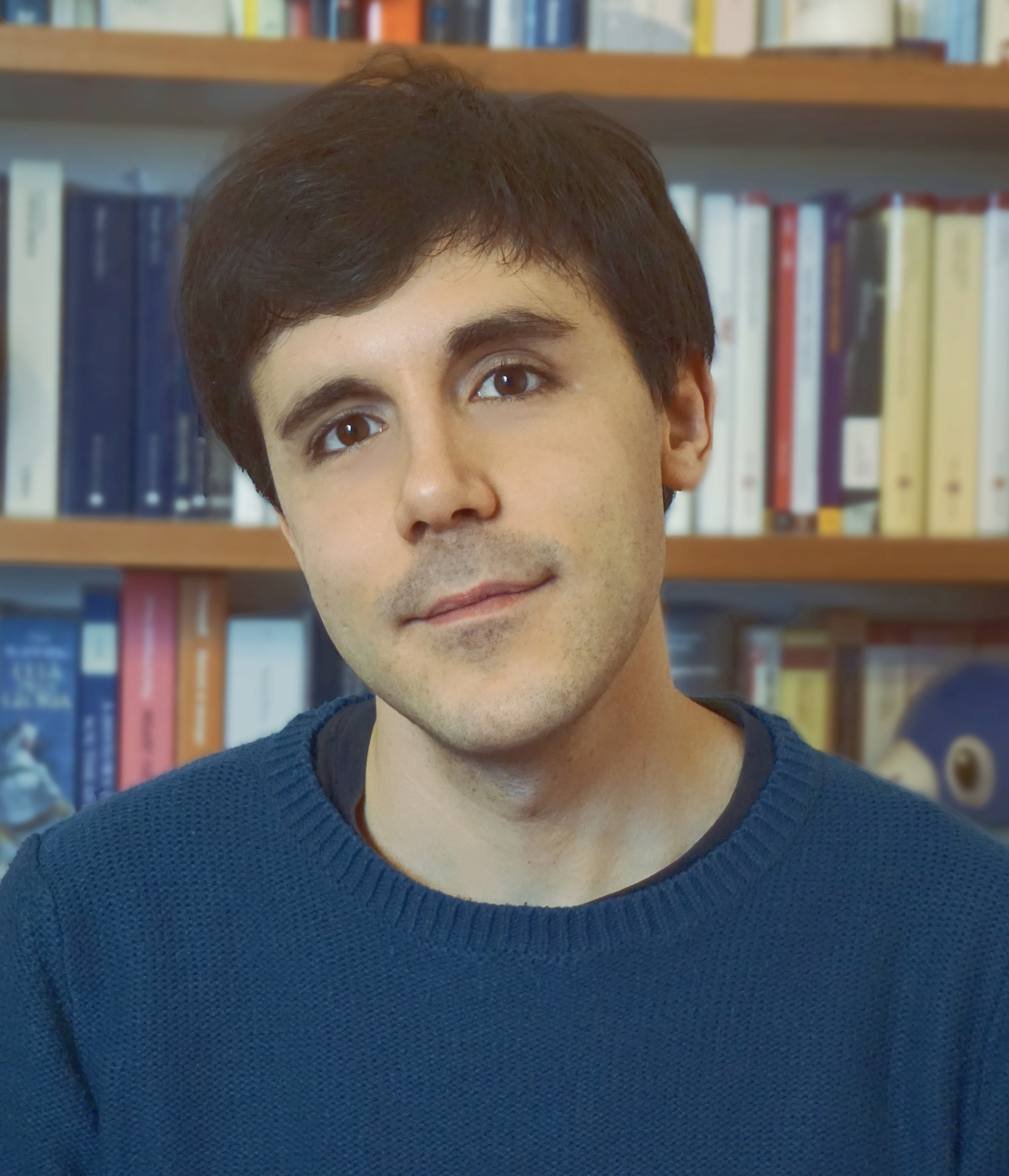
Get the latest updates in your inbox and sign up for more info!
The "Tradurre il Giappone: il fenomeno manga" conference took place during the latest edition of BCBF. The conference provided a comprehensive and timely overview of manga comics' history, examining the key features of manga culture with a particular focus on the essential skills required of manga content translators.Let's delve into an engaging recap by children's books and a manga translator Davide Sarti, who actively participated in the panel.
The panel entitled 'Translating Japan: the Manga Phenomenon' took place in occasion of Bologna Children's Book Fair 2023 at the Translators Café, and it was attended by: Paolo La Marca, professor at the University of Catania and manga editorial director for Coconino Press; Asuka Ozumi, publishing and licensing manager for Dynit Manga; Davide Sarti and Federica Lippi, comic translators from Japanese to Italian. The meeting was moderated by Simona Mambrini.
The event started with a speech by Paolo La Marca, who was live online from Japan. Paolo gave a brief definition of “manga”, starting first from the descriptions found in Italian vocabularies. He showed, how in Italy manga often receive outdated definitions that frame them as 'comics for teenagers', 'passionate' or even 'erotic comics'. He then made a comparison with the definitions that can be found in Japanese vocabularies, finally coming to define manga as “comics of Japanese production”.
Afterwards, Asuka Ozumi presented Dynit Manga publisher's latest catalogue choices, explaining the message contained in the works she selected and how she had considered them important in the Italian market’s landscape. All the manga presented aimed at an adult female audience, focusing on crucial themes such as female sex work and revenge porn.
Then, Federica Lippi and Davide Sarti explained the main linguistic difficulties and cultural obstacles they encounter in their everyday life translating from Japanese to Italian. Japanese language is completely different from the Western ones: not only it has a very complex writing system, but it also requires a whole different way of thinking. And this eventually leads to a completely rewriting of sentences, when translating. The speakers also talked about onomatopoeias, of which Japanese is extremely rich, and the difficulties in translating them into a language such as Italian where they are not equally common.
Finally, the meeting concluded by addressing the issue of the workers’ rights of comic book translators and how they are even less protected than other editorial translators. Thanks to the work of the Strade trade union, however, we will hopefully see improvements in the future.

Japanese language is completely different from the Western ones: not only it has a very complex writing system, but it also requires a whole different way of thinking
Davide Sarti graduated in Oriental Languages from Ca' Foscari University. After a period of study and work in Japan, he started working as a translator of comics and novels from Japanese to Italian for the most important Italian publishers. He published Capire il manga. Caratteristiche grafiche e narrative del fumetto giapponese (Società Editrice La Torre, 2018)